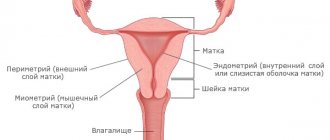A woman's normal monthly cycle lasts from 26 to 32 days, menstruation can last from two to seven days. If the cycle is shorter or longer, it is called irregular. In this case, they talk about menstrual irregularities.
As a result, for example, the maturation of the egg may be disrupted or ovulation may not occur - pregnancy becomes an unattainable dream. Cycle irregularity is more common than one might expect: only very few women can boast of a regular cycle.
Causes of irregular periods and treatments
A stable menstrual cycle is one of the important indicators of women's health. Normally, a healthy woman begins menstruation at regular intervals. According to research, most women have a cycle lasting 28 days. Irregular periods, changes in the abundance and nature of discharge are a signal from the body that there has been a malfunction in its functioning, which should not be ignored. Often, such a violation is a symptom of diseases of the genital area and requires immediate consultation with a doctor.
When should you contact a gynecologist?
If the irregularity occurs only once, it should not be a cause for concern. But if the following symptoms appear, it is better to schedule a visit to the doctor:
- The cycle had always been regular, and suddenly it began to change every month.
- The menstrual period comes less frequently and causes severe pain.
- Bleeding is completely absent or only “smeared.”
- Men's hair growth and weight gain are noted.
- Abdominal pain occurs regularly throughout the monthly cycle.
What should a normal (regular) menstrual cycle be like?
The female reproductive system works like a clock and every month goes through a certain sequence of stages, which are actively influenced by female sex hormones. These cyclical changes are called the menstrual cycle. It begins on the first day of menstruation in the form of bloody discharge from the uterus, the duration of which varies from 3 to 8 days. Normally, its duration is from 26 to 36 days.
A delay in the onset of menstruation by 5–7 days is not a deviation if it does not occur regularly.
Each menstrual cycle goes through four stages: egg maturation, ovulation, descent of the mature egg into the uterus and rejection of the uterine lining with the unfertilized egg in the form of menstrual blood.
Menstruation instability is indicated if the following occurs:
Changes in the menstrual cycle and adolescence
Irregularities in menstruation during puberty are considered normal. After the start of the cycle for 1.5-2 years, bleeding may occur with delays, the period between each menstruation will vary. Irregularity is due to the formation of the female body, the release of sex hormones and their imbalance. If after 2 years the instability of the cycle continues, the girl should immediately see a gynecologist.
Causes of irregular menstruation in adolescents:
- Polycystic ovary syndrome - the disease develops against the background of endocrine pathology. The symptoms are specific and can be easily identified during instrumental examination. Girls develop obesity, infrequent, scanty menstruation, hirsutism (excessive hair growth in unusual places: back, chest, arms). Ultrasound clearly shows a structural disorder of the ovaries: bilateral enlargement, stromal proliferation, multiple cystic follicles located under the capsule in the form of a “necklace”.
- Problems with the thyroid gland.
- Hormonal disorders.
- Ovarian hypofunction. A decrease in the functional activity of the ovaries is manifested by scanty, irregular menstruation, infertility or miscarriage, and changes in the structure of the ovaries.
- Hypothalamic syndrome - appears when there is a pathological change in the hypothalamic region of the brain. The disease is characterized by a large complex of symptoms: obesity, purple stretch marks on the skin, tension headaches and migraines, weakness, fluctuations in blood pressure, fainting, depression, irritability, increased hair growth and menstruation disorders (severe uterine bleeding, amenorrhea, cycle irregularity).
- Tumor processes in the pelvis: manifest themselves as pain in the lower abdomen of varying intensity, irregular cycles, amenorrhea, periodic uterine bleeding.
Diagnostic measures:
- Laboratory research:
- general blood and urine analysis;
- blood test for hormones: prolactin, estrogens, T3, T4, ACTH, TSH, FSH, LH;
- test for antibodies to the thyroid gland;
- biochemical study and blood glucose.
II.Instrumental research methods:
- radiography of the skull and sella turcica;
- Ultrasound of the pelvic organs;
- Ultrasound of the abdominal organs;
- Ultrasound of the mammary glands (if there is nagging pain before the start of the cycle).
Treatment of menstruation failure in a teenager begins with hormonal birth control pills. There is no need to be afraid of them - modern drugs contain a minimal amount of hormones and do not affect weight. On the contrary, some girls experience a slight weight loss due to the normalization of hormonal levels. Oily skin and acne also disappear, and hair stops falling out and splitting. The course of treatment lasts from 3 months until complete recovery.
https://youtu.be/92RoFZ3Y1zA
Irregular cycle: what to do
A disruption of the menstrual cycle in itself is not dangerous. The exception is when it is a sign of a serious illness. The gynecologist must determine the cause of the failure and prescribe the necessary examination.
Patients who are faced with the problem of irregular menstruation are usually prescribed a comprehensive examination of the body in order to identify the cause of the disorder.
It is highly not recommended to independently restore the regularity of menstruation by taking hormonal medications or to be treated with medicinal herbs that are offered by traditional healers. An incorrect approach to the problem can provoke a deterioration in a woman’s condition and a progressive course of the disease.
The following factors indicate that an irregular menstrual cycle has occurred due to a disease:
The absence of menstruation in girls over 15 years of age is a reason to consult a doctor.
How to treat and restore normal periods
To restore normal menstruation, you should know that treatment tactics depend on the age of the patient and the main cause of the malfunction of the female body:
Is it possible to get pregnant with an irregular cycle?
Inconsistency of menstrual flow indicates a problem with the reproductive system, so often women with an unstable cycle may experience difficulty conceiving. By identifying the cause of the body's malfunction and undergoing the necessary treatment, many people increase their chances of becoming pregnant and bearing a healthy baby.
The difficulty of getting pregnant is not the only problem for such patients. If a hormonal imbalance (lack of the pregnancy hormone progesterone) causes menstruation to fail, problems with bearing a baby may occur.
Gynecologists recommend that patients with irregular periods undergo examination and treatment before planning pregnancy.
Why do I have irregular periods?
For men, this is the only hormonal regime necessary to maintain the desired level of androgens. But for girls, changes at the hormonal level occur constantly: changes happen several times a month. That is why the duration or frequency of the cycle can change and even completely healthy girls face this. And in general, for some, the cycle stabilizes only at the age of 24-25, and before that it lives its own life. This is why many girls wonder how to determine when ovulation occurs in an irregular cycle. But first, it’s worth understanding the reasons for your irregular cycle.
External reasons
These include neuroses, severe stress, climate change when moving or on vacation, intellectual, psychological or physical overstrain, diets and fasting, stabilization of sex life or abrupt cessation, chronic fatigue, addiction to alcohol, drugs and nicotine, as well as coffee. The violations can be explained by the fact that before ovulation the hormone estrogen is responsible for everything, and after that it is progesterone. The second phase, the time of progesterone, is constant and lasts from 11 to 16 days. The first, controlled by estrogen, can last as long as desired and is generally individual. It is during this period that all conditions for conception are created. But if there is constant stress in your life, alcohol abuse, hunger strikes, or your health leaves much to be desired, the body needs much more time to create the conditions for conception. And if the unfavorable period drags on, ovulation may stop coming altogether. But let's get back to the reasons.
Another external reason can be called...a vacation overseas. No matter how strange it may sound. Firstly, even positive emotions are perceived by a woman’s body as stress. Secondly, this is a change in climate, to which the hormonal system can also react violently. If you like active recreation, with hikes and excursions, then this may also be one of the reasons why the cycle has gone astray, especially if in ordinary life you prefer to relax in front of the TV and work at the computer. Well, the flight itself also affects hormonal levels. So, do not be alarmed if, after a long-awaited vacation, your critical days did not come on time, or they came unplanned in the midst of your vacation.
Internal problems
They are more difficult to deal with. First of all, these are diseases. For example, ailments of the genitourinary system itself. This includes endometriosis, inflammatory processes in the appendages, cysts, and tumors. Problems with the pituitary gland may also be to blame. Sometimes cycle disorders are provoked by inflammatory, somatic or infectious diseases that have nothing to do with the sexual sphere. The body is still weakened, which means it cannot properly prepare for pregnancy.
Irregular cycle due to medications
First of all, hormonal, and we are talking not only about contraceptives, but also about other means. All of them can make menstruation scanty and short-lived, and if the means are chosen incorrectly, they affect both the duration of the cycle and the characteristics of its course. It is especially famous for its ability to disrupt the postinor cycle. Today, by the way, there are less “thermonuclear” means for emergency contraception, but they are also not a gift. Antidepressants can also delay ovulation. Blood thinners and anticoagulants can also affect the onset of menstrual periods.
Antiulcer drugs also delay the onset of menstrual periods. They may well delay your period. Another provocateur is blood-stopping drugs.
- The intrauterine device may also be to blame. Some of them release a certain amount of hormones, others cause miscarriage at the end of the cycle.
- Abortions (both spontaneous and induced) and breastfeeding can also affect the cycle.
It’s important to know: if ovulation happens earlier or later once or twice a year, it’s not a big deal. It is worth sounding the alarm if this continues for six months or more.
Prevention and restoration of irregular periods
Most often, an unstable menstrual cycle is caused by external factors associated with an incorrect lifestyle. Doctors recommend that women undergo regular gynecological examinations in order to identify possible problems with women's health and adhere to the following rules:
Despite the fact that a delay of several days in a healthy woman is the norm, you should carefully listen to the body’s signals. An inconsistent menstrual cycle is a good reason to start a comprehensive examination and visit your gynecologist.
Source
How to improve your menstrual cycle: the best ways
In women, a number of cyclical changes occur in the body every month. This is a natural physiological process indicating the normal functioning of the reproductive system.
Under the influence of certain reasons, failures in this system are possible. Therefore, you need to know how to normalize the menstrual cycle. To restore menstruation, medications and traditional medicine recipes are used.
Menstrual cycle calendar. Why is it needed, how and when to conduct it?
When using any of the above methods, the data is transferred to a special diary called the menstrual cycle calendar. It can be performed in various forms: in the form of a regular circling of numbers on a calendar, in the form of a graph or chart, or in the form of a printout - in computer calculations. There is only one goal - to find out your menstrual cycle and monitor its fluctuations.
The menstrual cycle calendar performs the following functions:
- Determines the duration, nature and duration of menstruation;
- Helps to avoid unwanted pregnancy (detects the period of ovulation - dangerous days);
- Helps in creating a nutrition schedule (for losing weight or maintaining an ideal weight);
- Detects a delay in menstruation;
- Makes the gynecologist's work easier.
In what cases is it necessary to maintain such a calendar:
- For girls - at the onset of the first menstruation;
- Women over 40 years of age (premenopausal period);
- When planning a pregnancy (determines favorable days for conception);
- In case of menstrual irregularities at any age.
Why is the menstrual cycle disrupted?
Failure can be caused by both physiological and pathological reasons. Often such violations entail severe emotional shock. In this case, a number of hormonal changes occur that negatively affect reproductive function.
There may be a delay in regulation after childbirth, as well as as a result of uterine curettage. A one-time delay in menstruation or its appearance earlier than expected does not cause any particular concern. Pathological processes occurring in the body are signaled by a persistent disruption of the cycle.
Main causes of failures
The main reason why there is a delay is a cycle failure due to nervousness. Due to severe psycho-emotional stress, hormonal disruption occurs and there is a delay in regulation. Excessive physical activity can also provoke such changes. Often, problems with the cycle arise among professional athletes.
Irregular periods during adolescence. During the first two years after the onset of menarche, the cycle is only restored, and hormonal levels stabilize. Failure can also be caused by a sharp change in climatic conditions, excessive or insufficient body weight.
Oral contraceptives and other groups of medications can affect the timing of the arrival of regula. Pathologies of the thyroid gland and adrenal glands affect the cyclicality of processes occurring in the body.
Failure is often observed due to the development of diseases of the female genital organs (uterus, appendages, fallopian tubes and cervical canal). Another reason why you may miss your period is pregnancy.
What does the doctor do?
First, the doctor will ask you in detail about your medical history (anamnesis). For example, he asks for an accurate description of irregular cycles, possible general illnesses (such as metabolic diseases), mental disorders, severe weight fluctuations and medications.
Various studies may then follow to identify the exact cause of the irregular cycle or other irregularities:
- Physical and gynecological examination: These are routine.
- Measuring basal body temperature: A basal body temperature curve taken in the morning can give an idea of whether an irregular cycle is a sign of impaired egg maturation or lack of ovulation.
- Laboratory tests: In particular, measuring the concentration of hormones (prolactin, estrogens, progestins, thyroid hormones, etc.)
- Imaging techniques: Ultrasound, computed tomography (CT), and/or magnetic resonance imaging (MRI) may be used to demonstrate cycle-specific changes in the reproductive organs or to rule out tumors.
How can a doctor treat an irregular cycle?
If your irregular cycle is caused by conditions such as chronic pelvic inflammatory disease or PCO syndrome, treating these conditions is a priority.
To stabilize their cycle, women can take hormonal supplements.
Important Research
These investigations help determine the reasons for complaints:
- biopsy
- blood collection
- blood analysis
- gynecological examination
- J1 study
- J2 study
- colposcopy
- laparoscopy
- scintigraphy
Recommendations
Cycle failure can occur for physiological reasons and due to the development of serious gynecological diseases. Only a doctor can determine what caused such changes. For this purpose, an examination by a gynecologist and a set of diagnostic measures are carried out. Based on the data obtained, treatment tactics are selected.
Nevertheless, there are a number of recommendations, following which, it will be possible to normalize the cycle if functional disorders lead to its failure:
Systematic delays and the appearance of regulations ahead of schedule is a serious problem, often signaling the development of gynecological pathologies.
If the cyclicity of menstruation is disrupted, you should definitely be examined by a gynecologist. Even if such changes were provoked by physiological reasons, the cycle must be restored under strict medical supervision.
Source
How to provoke and bring menstruation closer if delayed: methods
How to provoke and bring menstruation closer if delayed: methods
Bleeding, which is an integral part of the menstrual cycle, is proof of the proper functioning of the female body, they are natural and normal. However, sometimes a situation may arise in which a woman may need to speed up her regulation.
This may be due to several reasons, but the main one remains, nevertheless, domestic. The most common reason to influence physiological processes is the upcoming vacation, which coincides in dates with the arrival of menstruation.
If a woman spends her vacation in a familiar environment, her condition will not greatly affect the comfortable pastime. It’s a completely different matter if you’re going to the seaside or on a long excursion trip.
Naturally, in such conditions it will be problematic to constantly seek solitude in order to change a pad or tampon, and good health during menstruation is a rather rare occurrence.
If the delay is not associated with pathological conditions of the body, and you are absolutely sure that you are not pregnant, then it is quite possible to speed up the arrival of your period at home.
There are several ways to help you get your period closer.
Tips on the problem: what can you do yourself?
If an irregular cycle is caused by lifestyle, women can try to treat the hormonal disorder on their own. Tips will help:
- Relax: If the cause of discomfort is stress or mental imbalance, you should immediately try to relax. For example, with the help of yoga or autogenic training.
- Change your diet: A healthy and balanced diet with plenty of fibre, lean meats and dairy products, and fruits and vegetables supports all physical processes - and therefore cycle regularity.
- Exercise: No one should exercise every day. But light exercise, such as cycling or swimming for 30 minutes three times a week, will not only improve your fitness, but also keep your hormones balanced.
If irregularities in the menstrual cycle are associated with other reasons, you should definitely contact a good gynecologist.
ONLINE REGISTRATION at the DIANA clinic
You can make an appointment by calling the toll-free phone number 8-800-707-15-60 or filling out the contact form. In this case, we will contact you ourselves.
If you find an error, please select a piece of text and press Ctrl+Enter
How to speed up your periods so they go faster
Before you decide to induce menstruation if you are late, you need to be one hundred percent sure that a new, long-awaited life is not being born in your body. To do this, it is not enough to simply use a home test sold at the nearest pharmacy.
A woman who wants to speed up the approach of menstruation should take an hCG (human chorionic gonadotropin) test, which can accurately diagnose early pregnancy.
If it turns out to be negative, you can hasten the onset of regulation using the following types of medications:
Under no circumstances should you purchase or take these pills without consulting a gynecologist. Only well-structured therapy prescribed by a specialist can safely rebuild a woman’s menstrual cycle.
By independently interfering with the hormonal system, you may be able to make bleeding start a couple of days earlier, but after such experiments with your own body, you may encounter very serious problems.
Folk remedies at home
If the situation is critical and you “desperately” need your period to pass at least a week earlier than usual, or vice versa, you need to postpone the passage of menstruation for a couple of days, use folk remedies to stimulate the body.
Note! Before consuming any herbal infusions, you must make sure that you are not allergic to any components that make up the plant. Otherwise, instead of the expected result, you may get severe swelling of the mucous membrane and end up in a hospital bed before your vacation.
Physical methods
Therapeutic exercise is rightfully considered one of the effective ways to influence the human body. Exercises compiled by experienced specialists with medical education have long been successfully used for rehabilitation, treatment and prevention of many diseases.
These methods will help you quickly and without much harm shift your menstrual cycle:
Cautions
With all the desire to adjust the natural processes of the body to one’s immediate desires, there are a number of diseases in which it is strictly forbidden to personally interfere with the work of one’s reproductive system.
| Pathology | Possible risk |
| Tendency to thrombosis | Blockage of blood vessels |
| Cardiac diseases | Complications of the cardiovascular system, pre-infarction condition |
| High blood pressure | Hypertensive crisis |
| Endocrine system diseases | Diabetes mellitus type 2, hormonal imbalance |
| Amenorrhea (absence of menstruation for more than six months) | Infertility |
| Diseases of the uterus and appendages | Risk of the disease progressing to the acute stage with subsequent hospitalization |
| Benign tumor, fibroid | Oncology |
Think carefully about whether a few days of menstruation are worth experimenting with your body with unpredictable results.
After all, there is currently a fairly large selection of personal hygiene products in stores and pharmacies that alleviate a woman’s condition during her menstrual period and allow her to lead a full life during this period.
Isn't it better to act like a civilized person, without resorting to risky games with your health?
How to determine when ovulation occurs with an irregular cycle
Unfortunately, calendar methods are not helpful in finding day X if the cycle is irregular. But you still shouldn’t despair, because there are other ways to find it. True, some can be combined.
Ovulation tests
As we found out earlier, the female body obeys hormones. When the egg matures, the luteinizing hormone, also known as LH, becomes the main hormone. It is present in urine, saliva, and blood, so it can be determined using a test. Diagnosis using tests is based on determining PH. By the way, ovulation tests are different:
- Strip (strip test)
- Tablet
- Jet
- Portable reusable
- Digital (determine the release of an egg from saliva).
As with pregnancy tests, sometimes two lines are all it takes to tell the whole story. More high-tech tests work differently.
There is one more key point. The test result does not indicate the actual release of the egg, but simply records the most active surge of the ovulation hormone. The extremely high level of this hormone lasts less than 24 hours, so it is better to test twice a day. To more accurately capture the moment of X.
If you have an irregular cycle, you need to take your shortest cycle over the last seven months as the unit of measurement (keep track!). Tests should be carried out at the following time intervals:
- If the cycle is 32 days, we test 5-7 days from the 15th day after the start of the critical days;
- If the cycle is 26 days - the same five days in a row but from the seventh day after the onset of menarche;
- With a 24-day cycle - from the ninth day.
The disadvantages of the tests are their high price and imperfect accuracy: it is very difficult to determine when a cell has come out for sure. In addition, some illnesses can cause an increase in the level of luteinizing hormones. These are PCOS and many endocrine disorders. The same problems arise when conducting laboratory tests for hormones.
It is important to know! If you use this test, do not drink too much liquid. This way you can change the proportion of LH in the urine.
Temperature method
This method is sometimes called ideal. The only difficulty is that you will have to measure your basal temperature every morning for at least three months in a row. (For those who have never done it: the procedure is carried out immediately upon waking up, before getting out of bed and going to the toilet. The thermometer can be inserted into the rectal opening, or into the vagina). Keep track of all jumps in numbers (even by a third of a degree) and write everything down. Even a slight rise in temperature can mean the release of an egg. But in general, basal temperature indicators are usually as follows:
- After the start of the critical days and until the release of the egg, the temperature ranges from the usual 36.6 to 36.8-9;
- A couple of days before leaving, the temperature drops by 0.2-0.3 degrees, after which it immediately jumps (37.2). This is ovulation;
- The rest of the time we live with a temperature of 37 degrees, before menstruation it drops by about a third of a degree. There may be other numbers, but ups and downs mean hormonal changes.
Examination by a gynecologist
An ideal option, because it will definitely “feel” for ovulation. Just don’t go to him every day.
Ultrasound
It couldn't be more reliable. In addition, the method is quite harmless. The first visit to the ultrasound room should be scheduled for 7-8 days after the arrival of the critical days. The next one is the twelfth day, when healthy women begin to ovulate. The following studies are at your request and the recommendation of a gynecologist. If the follicle size is between 18 and 21 mm, ovulation is just around the corner. And if it bursts, perhaps you will become a mother soon.
Subjective well-being
Usually during the period of ovulation, events and changes occur that many girls notice very well. Firstly, pain in the abdomen (usually in the ovary or uterus) is often observed at this time. They are shooting, tingling, pulling or premenstrual-like.
The second point that cannot be ignored is the thickness of the cervical fluid. It becomes similar in consistency to egg white and there is more of it than usual. You can check it by placing your finger on the cervix. By the way, during ovulation the cervix opens wider and becomes softer. If you examine the cervix with your finger, you will notice that the temperature in the vagina is high during the period of cell release.
What else can you notice during this period? Girls who do gymnastics or dance notice that during ovulation they have more energy and their workouts are productive, and their bodies become more flexible.
At this time, productivity also increases. There is also a desire to communicate more actively with the opposite sex, go to parties or something similar. Finally, sexual arousal may increase. If all this is confirmed by BT studies, tests or a gynecologist, you can safely state ovulation.











